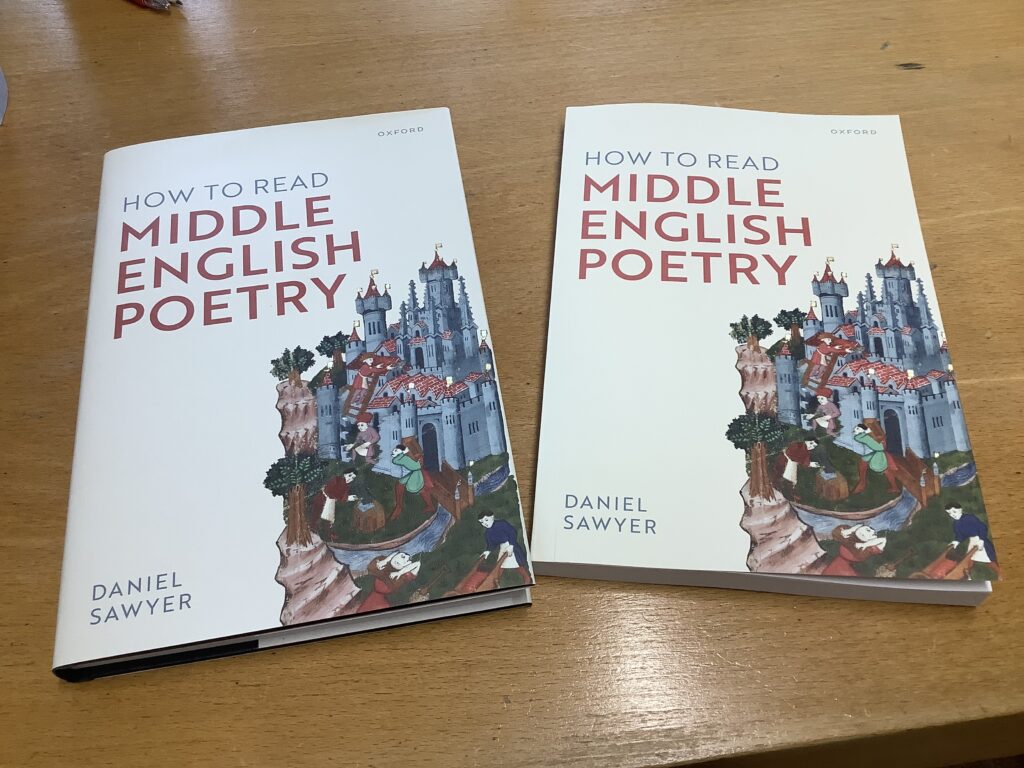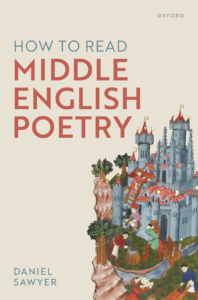
I’m very happy to report that Oxford University Press have now published How to Read Middle English Poetry, and copies are beginning to arrive. It’ll be a little while before it filters its way out to bookshops and, in particular, it’s set to come out in July in North America. But I have a small stack of copies of both the hardback and the paperback in my office: the book does exist!
I hope bookshops will carry the book widely, but readers who order directly through OUP via global.oup.com/academic can get 30% off using the discount code AAFLYG6. The code works for both the hardback and the paperback, and should never expire.

How to Read Middle English Poetry offers an accessible, student-focused guide to the nuts and bolts of poetry from the twelfth to the fifteenth centuries. It walks readers through the workings of Middle English poetry, starting small with word choice, and working up through word order, metre, rhyme and alliteration, and stanzas, to the big overarching formal choices that control whole poems. Three contextual chapters discuss manuscripts, multilingualism, and performance, and at the back there’s an indexed glossary of the technical terms used throughout.
The book tries not to be parochial. I claim no great expertise in Old English poetics, but I at least to point students towards the topic in several places. I also tie Middle English to modern poets who either knowingly borrow from it or unknowingly echo it. That’s ‘modern’ as in George Herbert, but also ‘modern’ as in Caroline Bergvall and Terrance Hayes. One of the book’s implicit ideas is that—despite requiring different skills through time—all poetry is poetry, and some aspects of literary criticism persist across periods.
Where possible, the book draws on easily-available editions, including the TEAMS editions that my colleagues will know, which can also be found online for free. How to Read doesn’t restrict itself to these. But their presence will, I hope, mean the book remains useful even for readers lacking a big university library: general readers, that is, but also students in less well-resourced places. I wanted to write a book that might still come in handy if you’re a student at a small college in the middle of nowhere in the Midwest, meeting Chaucer for the first time.
I’m sure the book’s not perfect. No book is, and this one takes on a particularly big topic. Although I’ve not spotted many errors since I returned the final proofs, I can already think of points that I would now refine. But error and slippage are the prices we pay for trying to do things at all. And now I have at least done something.
Comments